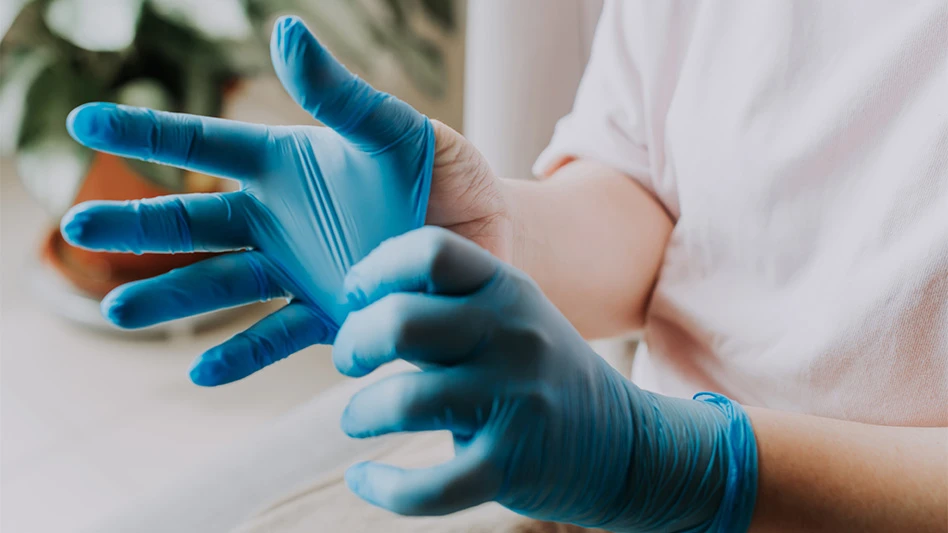
Edwin Tan | iStock
Contact dermatitis is a skin condition that is caused by direct contact with some type of irritant. It usually results in dry, red, itchy, and sometimes cracked and bleeding skin. As long as you are routinely exposed to the irritant, the skin condition continues. Once exposure stops, the skin heals.
Pest control technicians can get hand dermatitis when they wear impermeable gloves frequently. The dermatitis can be from unnoticed contact with chemicals that is then compounded when hands remain damp and too warm inside gloves.
Some technicians might have a skin reaction to the gloves themselves. The lubricant powder used inside latex gloves, for example, can cause skin dermatitis. If you must use latex gloves, choose "powder-free." A small percentage of the population that is allergic to the proteins in latex rubber can have a more serious reaction when using latex gloves.
Skin that is damaged or cracked, or skin that is constantly wet, is more prone to dermatitis. Because the disposable or rubber gloves that we use in pest control can make your hands sweat and then hold in the moisture, don't wear gloves when you don't need to. When you no longer need the gloves for protection, take them off and let your skin breathe.
Remove disposable gloves carefully without touching the outside surfaces with bare fingers. Wash nitrile, rubber, or other noncotton gloves first with soap and water, then remove them.
You might think that washing your hands frequently would help, but it can also remove the natural oils that protect your skin. Putting still moist hands back into gloves is also a problem. If you've been handling pesticides or solvents, you certainly need to wash your hands as directed, but don't overdo it.
If you're working with pesticides, be careful what you touch with your gloved hands.
If you need to reduce moisture, separate glove liners can be worn inside your gloves but the liners must be kept dry and must be disposed of daily. Don't use gloves with a liner already built-in. Don't re-use disposable gloves because they are almost impossible to dry thoroughly or to put on again without contaminating your hands.
Don't be shy about using hand lotion to protect and hydrate your skin. But don't buy cheap. Choose a lotion that is for damaged skin and promotes skin healing. (Don't use skin lotions if you use latex gloves since they can deteriorate the gloves.)
Latest from Pest Control Technology
- Donny Oswalt Shares What Makes Termites a 'Tricky' Pest
- Study Finds Fecal Tests Can Reveal Active Termite Infestations
- Peachtree Pest Control Partners with Local Nonprofits to Fight Food Insecurity
- Allergy Technologies, PHA Expand ATAHC Complete Program to Protect 8,500 Homes
- Housecall Pro Hosts '25 Winter Summit Featuring Mike Rowe
- Advanced Education
- Spotted Lanternflies, BMSBs Most Problematic Invasive Pests, Poll Finds
- Ecolab Acquires Guardian Pest Solutions





